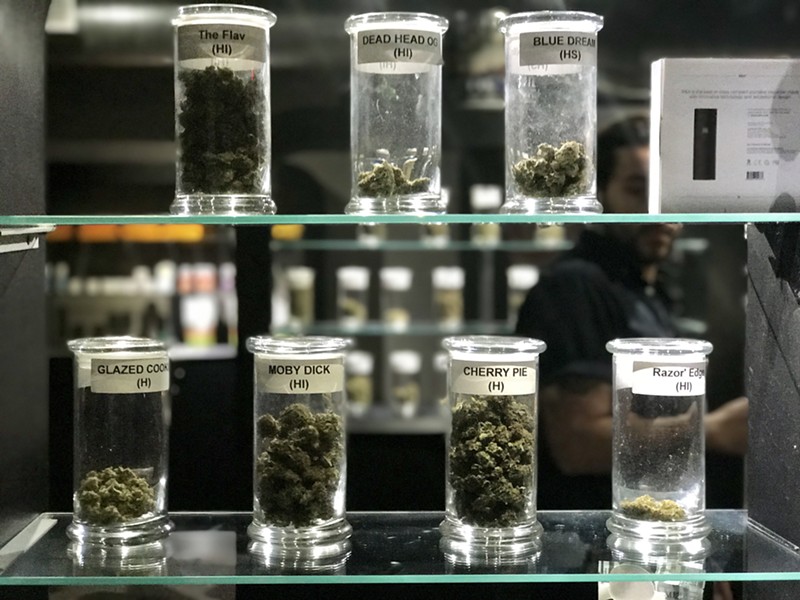Detroit closer to allowing pot dispensaries to open with new ordinance
[
{
"name": "GPT - Leaderboard - Inline - Content",
"component": "35519556",
"insertPoint": "5th",
"startingPoint": "3",
"requiredCountToDisplay": "3",
"maxInsertions": 100
}
]
The city of Detroit is drafting a long-awaited ordinance that would ensure that half of the city’s recreational marijuana dispensaries are owned by Detroiters.
Detroit City Council temporarily banned recreational pot businesses at the last minute in 2019. The idea was to create an ordinance that would guarantee that Detroiters have an opportunity to get involved in the blossoming industry.
The council imposed a March 31 deadline to approve a new ordinance. Details of the plan weren’t immediately clear, but Mayor Mike Duggan is expected to divulge more information at his seventh State of the City address on Tuesday evening.
It’s unclear why the city waited until the last minute to draft an ordinance. Voters in Detroit overwhelmingly supported the legalization of recreational cannabis in November 2016.
On Thursday, a group of Detroit businesses filed a lawsuit against the state, arguing they should have been permitted to open recreational dispensaries because the city’s moratorium wasn’t approved until after the state began accepting applications to open pot businesses.
Since marijuana sales have been legal beginning on Dec. 2, more than 40 dispensaries have opened across the state, and a vast majority of them are nowhere near Detroit, the state’s largest city. The closest dispensaries to Detroit are in River Rouge. They are Herbology and 1st Quality Medz.
About 80% of the state’s communities have imposed bans on recreational dispensaries. Some of the bans are expected to be lifted after community leaders have an opportunity to examine the industry in action.
Recreational dispensaries have been very popular, with long lines and pot shortages. In the first two months, the dispensaries have rang up $17.7 million in sales and $2.9 million in new taxes.
From Dec. 1 to Feb. 2, the state approved licenses for 43 recreational pot dispensaries, 18 growers, seven processors, and three event organizers, according to the Michigan Marijuana Regulatory Agency. In Wayne County, 33 communities have imposed bans.
Unlike medicinal cannabis, recreational marijuana has a 10% excise tax and a 6% sales tax. Excise tax revenue goes to local governments, schools, and roads. Recreational marijuana sales are expected to top $150 million in sales and excise taxes in the 2020-21 fiscal budget, which begins in October, according to the Senate Fiscal Agency. By 2022-23, the agency projects the tax revenues will reach $262 million.
Stay on top of Detroit news and views. Sign up for our weekly issue newsletter delivered each Wednesday.







